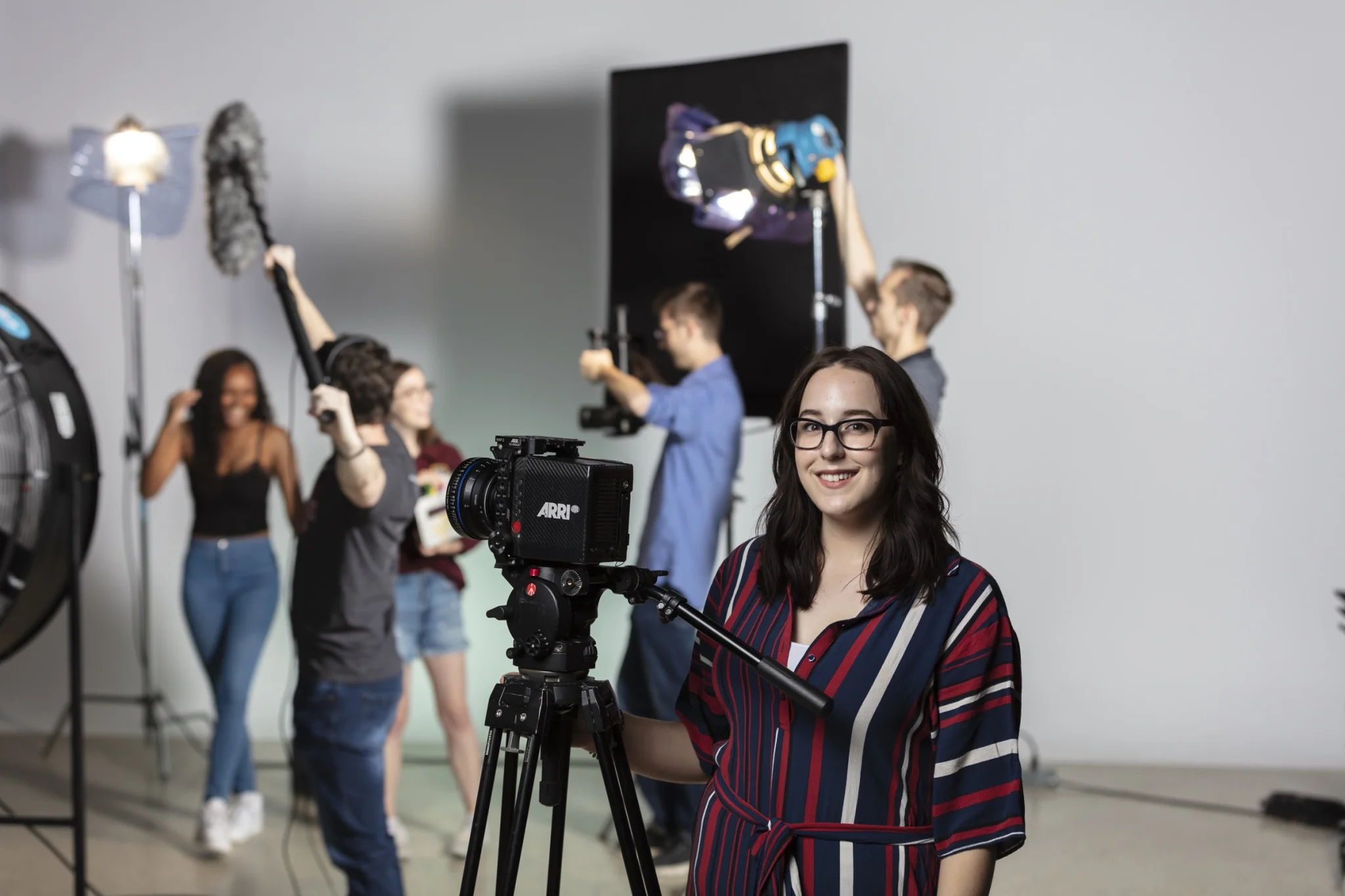
Program Overview & Highlights
- Honours 4-Year Program
- B.F.A.
Bring your vision to the screen. Learn by doing and develop your artistic, technical, storytelling, and professional workplace skills in a highly creative hands-on environment. Study all aspects of scripted and documentary filmmaking, including concept development, screenwriting, producing, directing, cinematography, sound, and editing. This four-year honours degree prepares emerging filmmakers for the realities of the vibrant Canadian film industry.
Create one short film per term
Award-winning and internationally recognized faculty
State-of-the-art film equipment and production facilities
Learn More About Our Program
180
hours of studio time every year
100%
of our graduates are employed within 2 years1
1 (OUGS Fine and Applied Arts, 2020)
1:23
faculty-to-student ratio, ensuring personalized attention from your world-class professors
+60%
of course time is spent in studios
Admission Requirements
High School Student from Canada
Course Requirements:English/ENG4U (min. avg. 60% [70% for Fall 2026])
Minimum Average: 70%
High School Student from Canada
Course Requirements: Grade 12 English
Minimum Average: 70%
Language Requirements
To review the most up-to-date information on Language Requirements: See language requirements.
Academic Calendars
The University of Windsor Academic Calendar is your source for official information about academic programs and regulations of the University of Windsor.
Career Tracks
- Editor
- Director
- Producer, Cinematographer
- Gaffer
- Sound Recordist
- Production Assistant
- Camera Assistant
- DIT (Digital Imaging Technician)
Contact A Recruiter
Do you have questions about this or one of our many other programs? Send us a message and we’ll answer any questions you have!